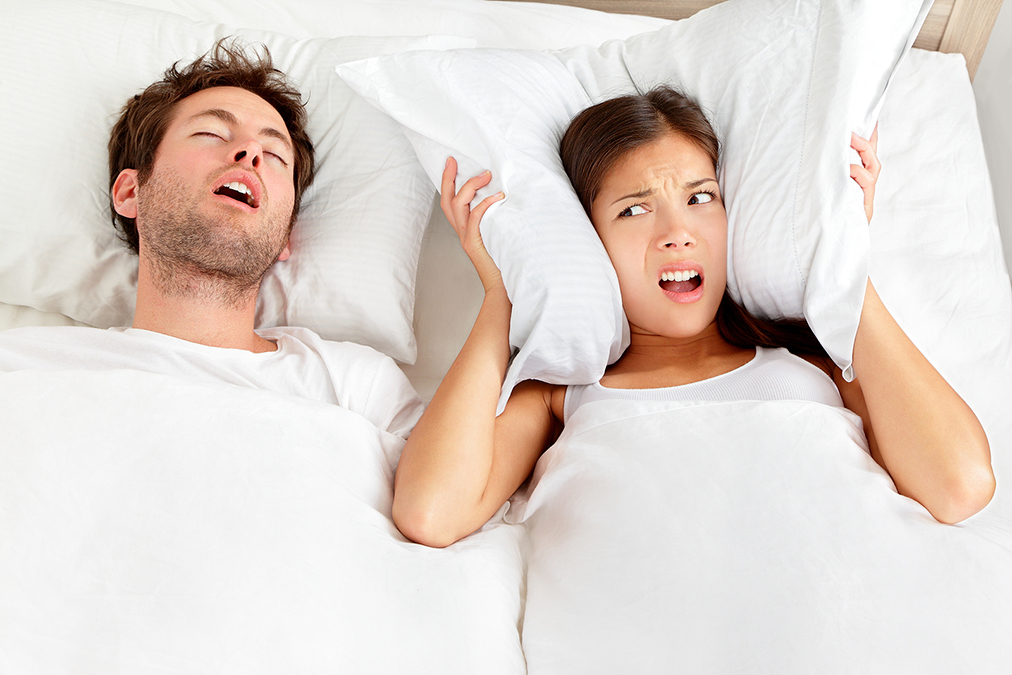 The problems caused by sleep apnea are substantially more serious than just poor sleep and daytime sleepiness.
The problems caused by sleep apnea are substantially more serious than just poor sleep and daytime sleepiness.
One of the most serious effects of sleep apnea is the onset of dementia, according to a study published in the latest Annals of the American Thoracic Society. It can happen at any age.
The good news is that you can cure sleep apnea and dementia using the same simple method.
A team led by scientists from the University of Calgary understood that sleep apnea could cause cardiovascular disease and that people with cardiovascular disease were more likely to develop dementia.
But they wanted to know whether mild cognitive impairment was also more common in people with sleep apnea, including those with or without cardiovascular disease.
If you have trouble recalling things from memory, have trouble concentrating on your work, struggle to make simple mathematical calculations in your head, or find that your reasoning and decision-making take longer than they used to, you probably have some level of mild cognitive impairment.
The Mayo Clinic describes this as the stage between normal cognitive decline (which occurs in most aging individuals) and the more serious condition of dementia.
For two reasons, it is important to identify the causes of mild cognitive impairment so that it can be addressed.
First, people need properly functioning thinking abilities to work productively. Second, since elderly people with mild cognitive impairment are more likely to develop dementia, we need to prevent it where we can.
Thus, the Canadian researchers wanted to know whether sleep apnea is a causal factor behind mild cognitive impairment.
For this study, they enrolled 1,084 people who had been referred to three sleep centers with suspected sleep apnea.
They were first given either a home-based sleep apnea test or a full polysomnography (sleep test) in the laboratory.
The researchers then asked them to complete a collection of cognitive tests to measure their learning, coding, and memory: the Montreal Cognitive Assessment Test, the Rey Auditory Verbal Learning Test, and the WAIS-IV Digit-Symbol Coding subtest of information processing speed.
The scientists also collected their sleep and medical histories to exclude factors like cardiovascular disease that could potentially distort their findings.
Their most important finding was that people with moderate or severe sleep apnea were approximately 70% more likely to have mild cognitive impairment than people without this sleep breathing disorder.
Overall, 47.9% of all sleep apnea patients were cognitively impaired; this rose to 55.3% in those with moderate and severe sleep apnea.
This comes as no surprise, since we have long known that the primary underlying cause of all types of dementia is lack of oxygen to the brain. And sleep apnea robs you of oxygen, leading directly to dementia.
Fortunately, there are easy home exercises you can do to load your brain with oxygen to stop or even reverse the onset of dementia. Learn these easy exercises here…
And if you snore or suffer from sleep apnea, you can do these simple throat exercises to open up your breathing passages and stop your snoring and sleep apnea…

 Overcoming IBD
Overcoming IBD Multiple Sclerosis
Multiple Sclerosis Banishing Bronchitis
Banishing Bronchitis Gum Disease Gone
Gum Disease Gone Overcoming Onychomycosis
Overcoming Onychomycosis Neuropathy No More
Neuropathy No More The Prostate Protocol
The Prostate Protocol Brain Booster
Brain Booster
 Ironbound
Ironbound
 Solution for Shingles
Solution for Shingles
 The Bone Density Solution
The Bone Density Solution
 The Ultimate Healing Protocol
The Ultimate Healing Protocol
 The Parkinson's Protocol
The Parkinson's Protocol
 The Chronic Kidney Disease Solution
The Chronic Kidney Disease Solution
 Overthrowing Anxiety
Overthrowing Anxiety The Fatty Liver Solution
The Fatty Liver Solution The Hypothyroidism Solution
The Hypothyroidism Solution
 The End of Gout
The End of Gout The Blood Pressure Program
The Blood Pressure Program
 The Oxigized Cholesterol Strategy
The Oxigized Cholesterol Strategy
 Stop Snoring And Sleep Apnea Program
Stop Snoring And Sleep Apnea Program
 The Arthritis Strategy
The Arthritis Strategy The Vertigo & Dizziness Program
The Vertigo & Dizziness Program The 3-Step Diabetes Strategy
The 3-Step Diabetes Strategy Hemorrhoids Healing Protocol
Hemorrhoids Healing Protocol The Erectile Dysfunction Master
The Erectile Dysfunction Master Weight Loss Breeze
Weight Loss Breeze The IBS Program
The IBS Program The Insomnia Program
The Insomnia Program The Migraine and Headache Program
The Migraine and Headache Program The Neck Pain Solution
The Neck Pain Solution The Menopause Solution
The Menopause Solution The Ejaculation Master
The Ejaculation Master The TMJ Solution
The TMJ Solution The Acid Reflux Solution
The Acid Reflux Solution The Fibromyalgia Solution
The Fibromyalgia Solution The Psoriasis Strategy
The Psoriasis Strategy